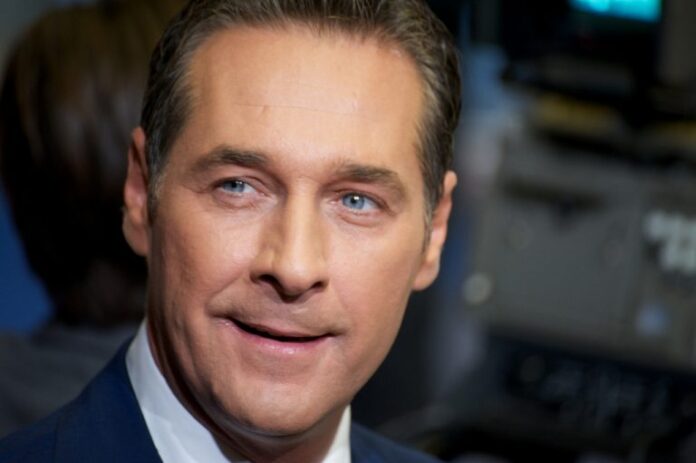Italy took the unprecedented step of citing Austria to the European Court of Justice on Monday, 16th, for its restrictions on heavy goods traffic at the Brenner Pass.
The movement marks the first time one EU member state has reported another to the ECJ for allegedly violating EU law.
Speaking to ANSA, Transport Minister Matteo Salvini stated that it was a difficult but necessary decision, given the European Commission’s delay in reaching a negotiated solution. The court will determine whether Austria’s ban on heavy goods traffic is legitimate or if the principle of free circulation of goods should take precedence.
A long dispute resolved in 1992
Italy and Austria had a long-standing dispute over an Alpine province, known as Alto Adige to the Italians and South Tyrol to the Austrians, since the end of World War I.
However, in 1992, they declared an end to their conflict before the United Nations, setting an example of compromise. On June 17, 1992, representatives of both countries informed the UN secretary-general, Boutros Boutros-Ghali, of their resolution. After several decades of effort, marked by waves of terrorist attacks and ethnic tensions, the region established institutions that suited everyone, averting the possibility of open conflict.
It is worth noting that the South Tyrolean People’s Party, a Christian democratic party, has the ideal of complete independence inscribed in its statutes. Nonetheless, according to its leaders, most people in the region are content with the status quo.
The refugee issue tests the EU’s internal borders.
In 2017, due to the influx of refugees into Europe, Austria downplayed a dispute with Italy over the possibility of border controls. Austria’s Defense Minister, Hans Peter Doskozil, commented that he would anticipate the introduction of border controls with Italy “very soon.”
However, his remarks were misunderstood by Rome as military preparations for a future influx of migrants. An official from his ministry confirmed a report in Austria’s top-selling tabloid that 750 troops were ready to be deployed, and four armored vehicles should arrive in the province, including the Brenner Pass. Italy summoned Austria’s ambassador to Rome over Doskozil’s comments.
Austrian Chancellor Christian Kern praised cooperation with Italy a day later and struck a conciliatory note. Italy was dealing with a surge in migrants crossing the Mediterranean from Africa. At the same time, migration remained a central issue in Austria’s parliamentary election in October 2017, and leading parties prioritised the importance of border security.
Austrian and Italian far-right depict “Europe of Nations”
In 2018, a dispute arose between Austria and Italy’s far-right parties. In December 2017, the conservative Austrian People’s Party (ÖVP) and the far-right Freedom Party of Austria (FPÖ) allied and succeeded the Kern government. Heinz-Christian Strache, the leader of FPÖ, became Vice Chancellor of Austria and Minister of Civil Service and Sports. However, the partnership ended in June 2019 under the Ibiza scandal in which Strache had a central role.
On May 31, 2018, Giuseppe Conte was appointed as the prime minister of Italy with support from the far-right League (North League) and the populist Five Stars Movement (M5S). Matteo Salvini, leader of the League, was appointed as the vice premier (and Interior Minister).
Both parties, the FPÖ and League, were prominent members of the Europe of Nations and Freedom (ENF) group at the European Parliament, which became the Identity and Democracy (ID) group in June 2019. The group includes the hard core of the European far-right, from Marine Le Pen to Geert Wilders of the Dutch Party for Freedom (PVV).
In October 2018, Austria’s far-right Freedom Party wanted to allow native German speakers in South Tyrol to have Austrian and Italian nationality, but Italy strongly opposed the idea. Matteo Salvini, usually a close ally of Austria’s Freedom Party, has clarified that his government will not allow dual citizenship.
South Tyrol was a success story, which had overcome sometimes violent ethnic conflict between the German and Italian populations. That balance was at risk if Austria started handing out passports.
In addition, Austria usually does not allow dual citizenship, but Strache wanted to make an exception for German and Ladin speakers in South Tyrol – but not Italian speakers. On a visit to Bolzano, he said that the dual passports would mean a lot for many people in South Tyrol, a way of documenting an identity they already feel.
This dispute demonstrated how a Europe of the Nations that the far-right parties promote could be — a continent where regions engage in national disputes, which could eventually lead to conflicts.
However, it seems that Italy, under a far-right coalition government, aims to keep the dispute alive.

